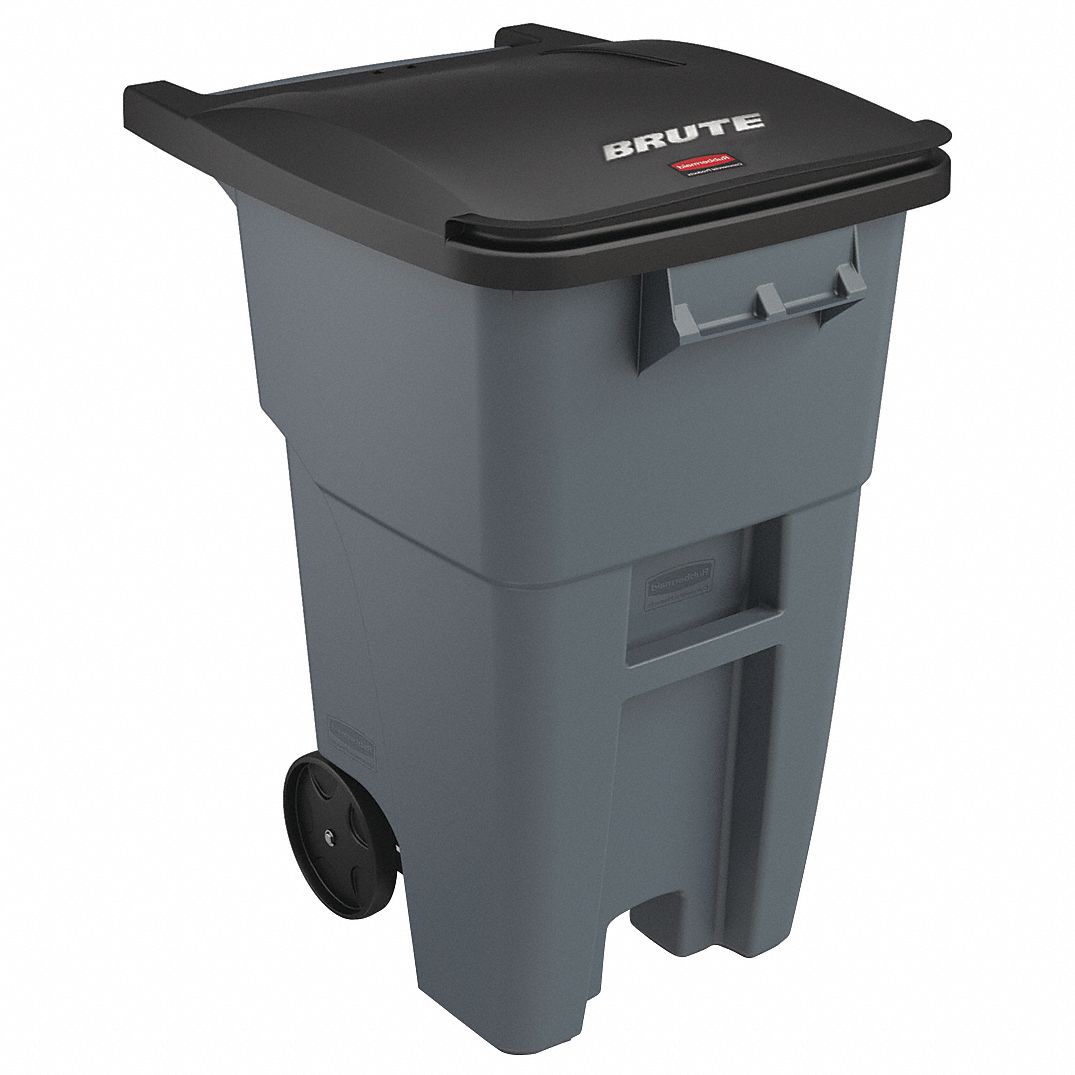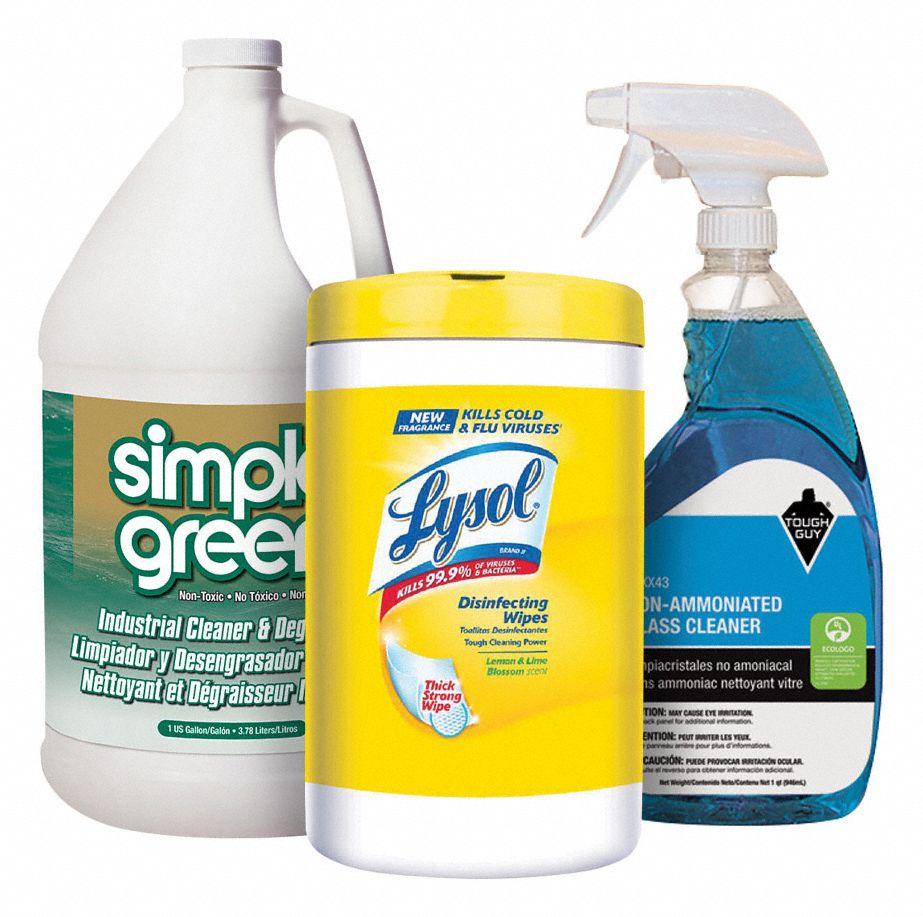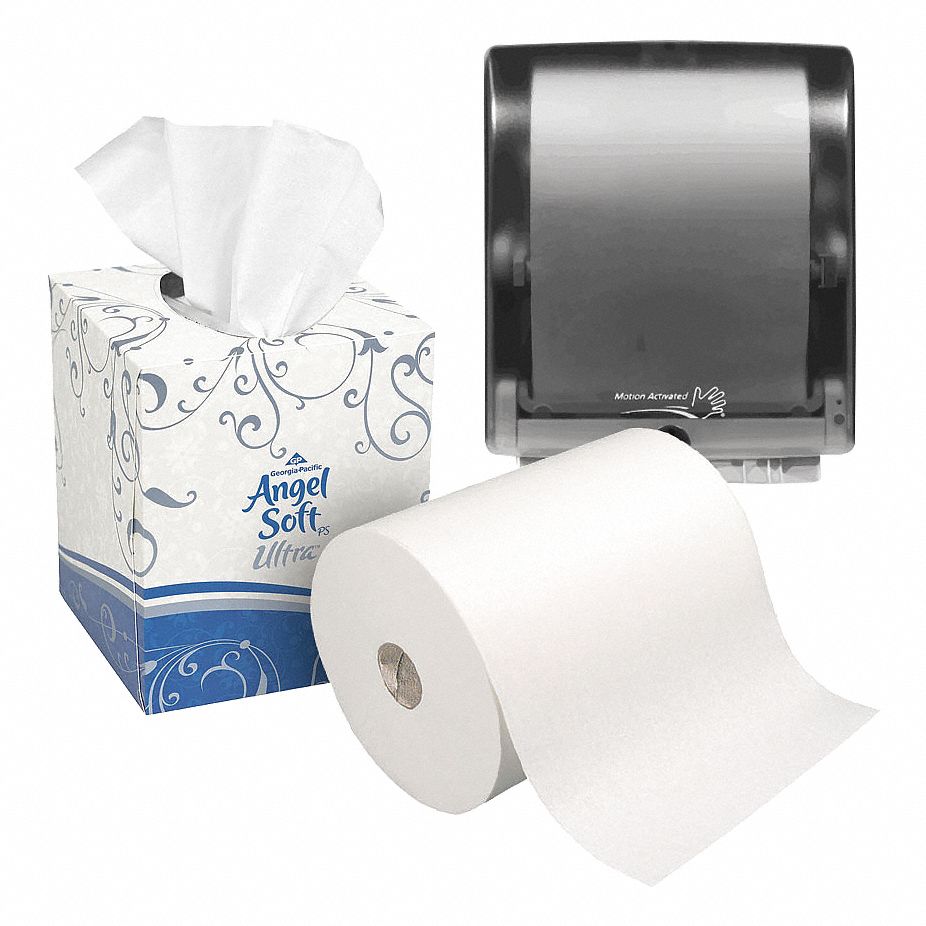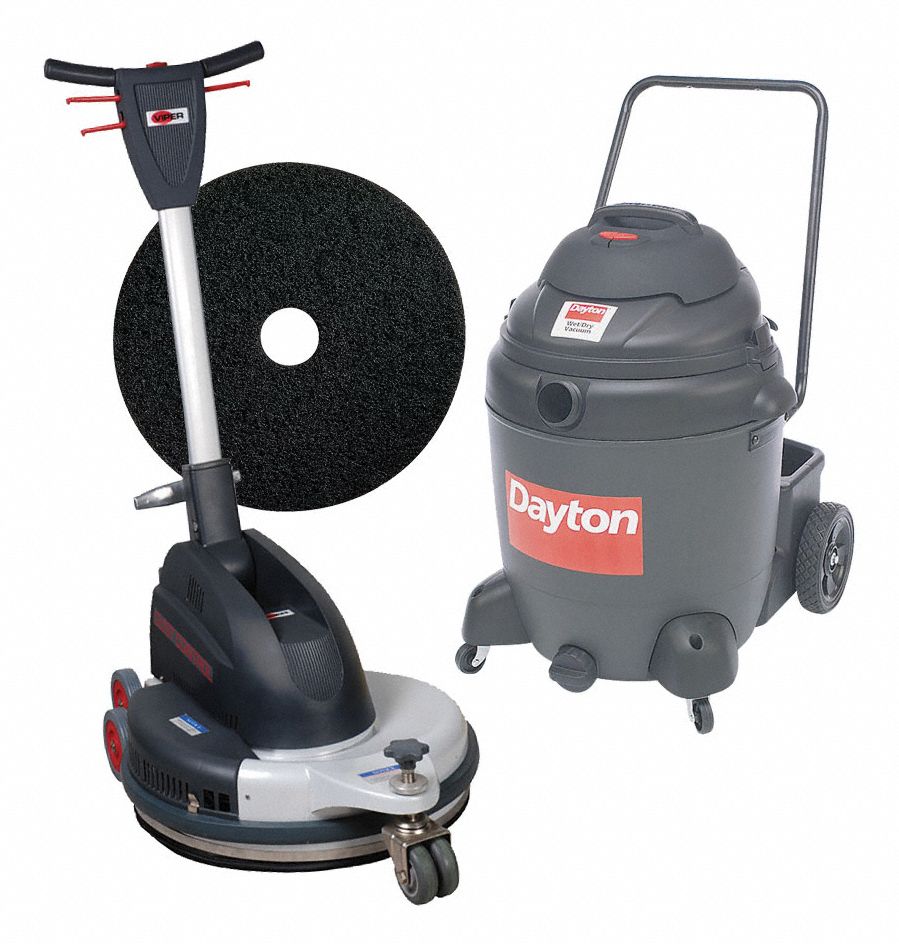

Biodegradable Garbage Bags vs. Compostable Bags
By Grainger Editorial Staff 10/5/21


In recent years, an increasing number of facility managers have begun to think seriously about the environmental consequences of their operations. Minimizing impact has become a widely shared goal, and broad C-suite support has made it easier to justify investments in efficiency and sustainability. But it's not always easy to tell when one choice is genuinely more environmentally friendly than another.
Just think of trash bags. It seems obvious that using compostable or biodegradable garbage bags would always be a green choice. If your goal is to choose bags that won't linger on this planet for decades after they're hauled away, wouldn't either option fit the bill? And wouldn't they both be better than conventional bags?
Unfortunately, it's not that simple. In 2019, a study published in Environmental Science and Technology looked at how five commonly available plastic bag materials responded to air, soil and sea environments over a three-year period. The study found that none of the bag materials would reliably deteriorate over that time span in all three environments, even though some of the bags were sold as biodegradable or compostable products.
But that doesn't mean that "compostable" and "biodegradable" are meaningless terms. In fact, an important technical distinction is emerging between them. If you're trying to choose a greener trash bag for your facility, you should take this distinction into account. But first, it's important to think about where your facility's refuse is actually going—the municipal solid waste stream.
Municipal Solid Waste and Commercial Composting
Most things that people and companies throw away end up as what the EPA calls municipal solid waste (MSW). The EPA estimates that in 2018, about half of all MSW was landfilled, while 24% of MSW was recycled and about 9% of MSW was composted.
What happens when MSW is composted? The process is similar to what happens in a home compost pile—organic waste is mixed together and managed in such a way that it breaks down into a nutrient-rich material that can be used to condition soil and help plants grow. But commercial composting facilities take an industrial approach, using mechanical agitation, higher temperatures and other means of speeding the process, as well as advanced quality management practices and tools.
When a trash bag or other product is certified as compostable, that means a third-party organization has confirmed that it will break down completely in the conditions found in a commercial composting facility. In the United States, the most prominent certification organization is the Biodegradable Products Institute (BPI), which certifies products that meet two standards established by ASTM International for biodegradability under commercial composting conditions: ASTM D6400 and ASTM D6868.
If you're sending waste to a commercial composting facility, it's critical to use certified compostable bags that are approved by your facility.
Bags that are sold as "biodegradable" but that aren't certified as compostable are not typically accepted by commercial composting facilities. The danger is that if the wrong things are added to the composting process, plastics and other residues will be left behind, and the resulting material will be unusable.
This gets to the key difference between biodegradable and compostable bags: "compostable" is becoming a meaningful technical term in the waste management industry, backed by third-party testing and consensus standards, while "biodegradable" tends to be vague—more of a marketing term that can give people a good feeling about what they're buying, without necessarily backing it up with all that much.
What if you don't have access to a commercial composting facility? In that case, it's much less clear that using compostable bags has any advantage. The conditions in a landfill are very different than those in a composting facility—for one thing, MSW landfills are for the most part airtight, which means that composting can't take place.
Even if you don't have a local industrial composting facility, you can still make green choices for your organization. In fact, according to the EPA, there are several methods for managing food waste that are even better than composting. The EPA's Food Recovery Hierarchy prioritizes them in this order:
- Source Reduction
- Feed Hungry People
- Feed Animals
- Industrial Uses
- Composting
- The Last Resort: Landfill or Incineration
An effective source reduction program can help your organization create less waste in the first place, and this is the greenest choice of all.
Frequently Asked Questions
Q: Can compostable bags be recycled? What about regular trash bags?
A: No, compostable bags (and other compostable plastics) cannot be recycled with normal petroleum-based plastics. Don't put compostable bags or compostable plastics in the recycling bin.
Q: Can conventional trash bags be recycled?
A: Conventional trash bags are typically made from plastics that can technically be recycled, such as LDPE or HDPE. But many municipal recycling programs do not accept plastic bags of any kind, whether empty or full, because of problems that this can create in the sorting process. Check with your municipal recycler to determine whether plastic bags are accepted, and if so, how they should be delivered.
Q: Can I add compostable bags to my home compost?
A: Certified compostable plastic bags are tested for compostability in industrial facilities. In a home compost pile, they won't necessarily degrade as rapidly as food scraps, lawn trimmings and other organic material. However, some compostable bags are described as being suitable for home composting as well as commercial facilities. Check on the bag packaging or on the bag itself for more information about its suitability for home composting.
Q: What are oxo-biodegradable bags?
A: Oxo-biodegradable plastic bags (also called oxo-degradable) are intended to degrade with exposure to oxygen. Unlike compostable plastic bags, which are typically made from a plant-starch-based plastic, oxo-degradable bags are made of traditional plastics with an additional additive designed to help them break down with oxidation. However, MSW landfills are designed to keep out oxygen. Research prepared by the Pacific Northwest Pollution Prevention Resource Center came to the conclusion that oxo-degradable bags seem to offer no significant benefits when disposed of in a landfill.
The information contained in this article is intended for general information purposes only and is based on information available as of the initial date of publication. No representation is made that the information or references are complete or remain current. This article is not a substitute for review of current applicable government regulations, industry standards, or other standards specific to your business and/or activities and should not be construed as legal advice or opinion. Readers with specific questions should refer to the applicable standards or consult with an attorney.











